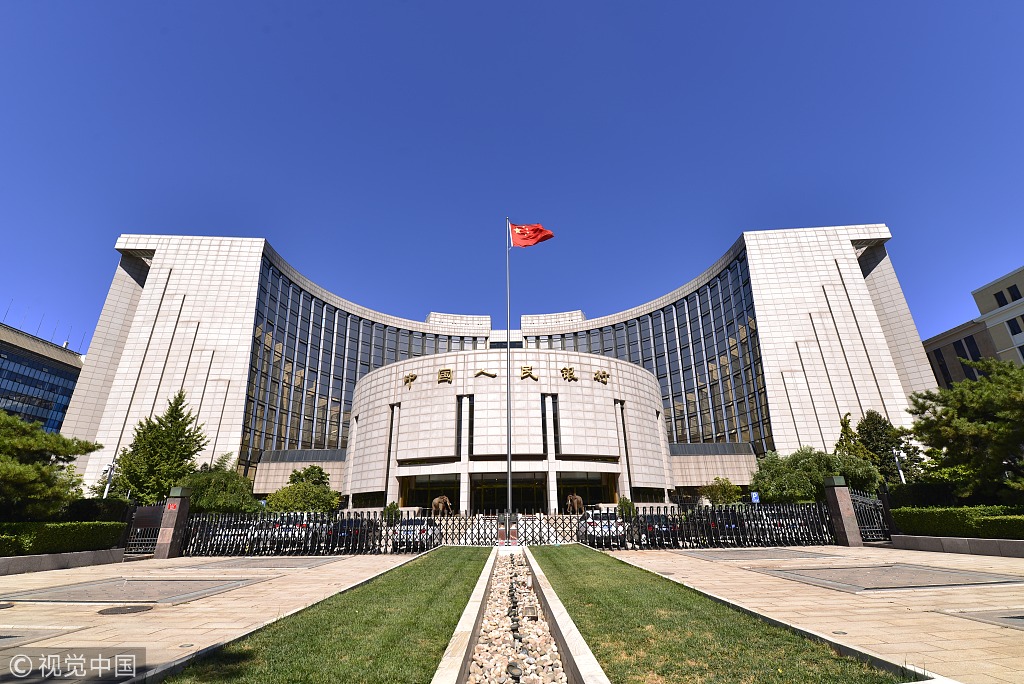Wider bond market access for foreign investors
By JIANG XUEQING | China Daily | Updated: 2019-01-18 07:07

Steps underway to gradually improve trading environment, global interest
Steps to encourage foreign investment in bond markets and make the overall investment environment more conducive and friendly will be enacted in a gradual manner, a central bank official said on Thursday.
Pan Gongsheng, deputy governor of the People's Bank of China, said: "We are preparing to launch bond index products such as bond exchange traded funds, promote interconnectivity among central depository institutions, and extend the settlement cycle for bond trading.
"The State Administration of Foreign Exchange, the currency regulator, is doing research on optimizing the arrangements for overseas investors to participate in foreign exchange hedging transactions. Besides, the PBOC will fully liberalize bond repurchase transactions at the right time and push hard with the utilization of the market for renminbi derivatives," said Pan at the China Bond Market International Forum in Beijing.
China had the third-largest bond market in the world at the end of 2018, with an aggregate balance of 86 trillion yuan ($12.7 trillion), behind the United States and Japan.
Pan said the country has accelerated the opening-up of its bond market in recent years.
"We made substantial adjustments and reforms in terms of relaxing market access management, expanding the scope of investors, lifting quota restrictions, enriching risk hedging instruments, and facilitating cross-border exchange of funds," he said.
Currently, 1,186 overseas institutional investors have invested in Chinese onshore bonds, and their total investment reached 1.73 trillion yuan. Among these foreign institutions, 505 access the market through the Bond Connect. The balance of their existing bonds is 180 billion yuan, he said.
Data show that the net inflow of foreign funds into China's bond market was about $100 billion last year, accounting for 80 percent of the funds flowing into the bond markets of emerging economies.
Such a strong appetite from overseas investors for renminbi-denominated assets was partly because returns on Chinese government bonds are higher than those of developed countries and major emerging economies. The yield on the 10-year Chinese government bond was 3.3 percent in December 2018, compared with 2.83 percent for the US Treasury bonds and 0.05 percent for Japanese government bonds with the same maturity.
Overseas investors in China's interbank bond market have largely invested in government bonds and policy bank bonds, holding 8.1 percent of the Chinese government bonds in the interbank bond market. There is still huge room for investment in high-grade corporate bonds and asset-backed bonds, said Pan.
"The opening of China's financial market is among the most important and exciting capital market developments of our time," said Mary Schapiro, vice-chairman of Bloomberg.
She noted that China's bond market is the third largest in the world, but still largely unexplored by global investors.
"The global investors we speak to tell us they are excited about China's bond market opportunity but expect greater improvements in market efficiency. Cost, liquidity and price transparency are paramount. Having the right market infrastructure and clear rules are vital for investor protection," she said.
"The reality is, China's bond market is an opportunity many investors can no longer ignore. Clear regulatory frameworks and access mechanisms drive market liquidity and demand-key components toward China being an investable bond market," she said.
China Foreign Exchange Trade System and Bloomberg announced at the forum that Bloomberg and its global affiliates will start providing qualified investors with channels to access China's interbank bond market. Global investors can trade onshore Chinese bonds via the Bloomberg Terminal, they said.
























